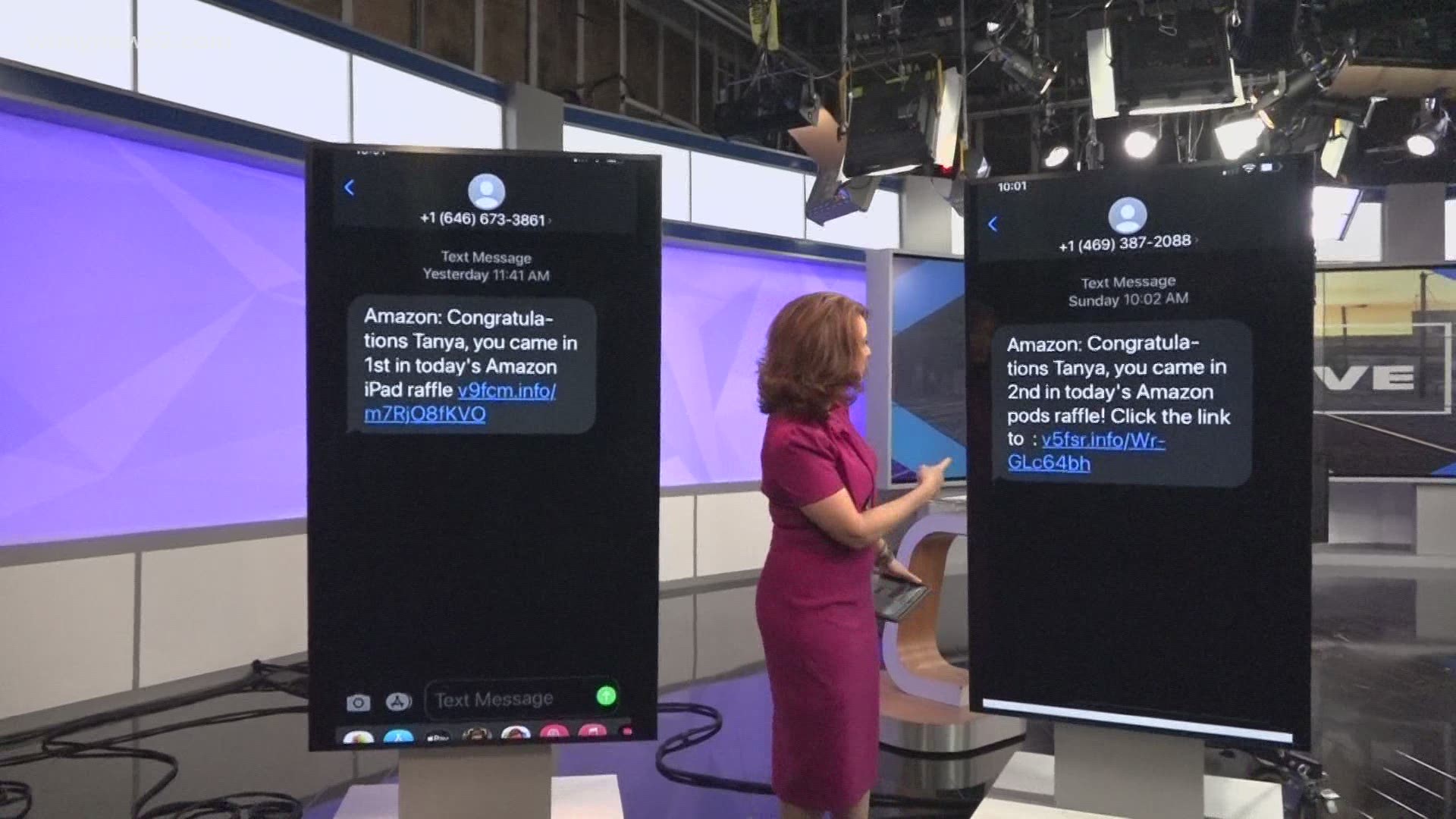GREENSBORO, N.C. — In the past week, I’ve received two texts that claim they’re from Amazon.
“Congratulations Tanya, you came in first in today's Amazon iPad raffle.
“You came in 2nd in today’s Amazon raffle for pods.”
Both ended with a link to click. If I did that, what I would have won was a bunch of trouble.
One Amazon customer after another asked about these kinds of texts on Amazon’s questions and answer page. The texts told them they too were winners. Most customers knew it was a scam and simply wanted to alert others and Amazon. But there were a few folks out there who wanted to believe it was true.
The Better Business Bureau has gotten so many complaints about various Amazon scam texts, the organization recently put out an article about it. According to the scam reports on the BBB website, 771 people reported scams about Amazon impersonation.
According to Amazon, any customer who receives a questionable email, text, or calls from a person impersonating amazon should report it to amazon customer service.
“Scammers are always looking for an opportunity and they know we know that name, Amazon,” said Lechelle Yates of the BBB.
Amazon offers a page for you to look at to identify whether an email, phone call, text, or webpage is really from Amazon. If you have a question about a message you've received, don't call the number or click the link, instead, go to the source.
How the Stimulus Scam Works
. BBB Scam Tracker has received reports from people contacted through text messages, email, and phone calls about the new COVID-19 stimulus checks.
According to BBB Scam Tracker reports, watch out for an email or text message instructing you to click a link to "request benefit payments." The link will take you to an application, which prompts you to enter information in order to "make sure you are getting all the payments owed to you." Of course, this “application” is really a way to phish for personal details and opens you up to the risk of identity theft.
In a phone variation, the scammer pretends to be calling from a government agency. The con artist insists you need to pay money - or "confirm” your personal information - before you can receive your stimulus check. Other times, scammers claim that you can get additional money or even receive your funds immediately. All you need to do is pay a small “processing fee" through a pre-paid debit card.

